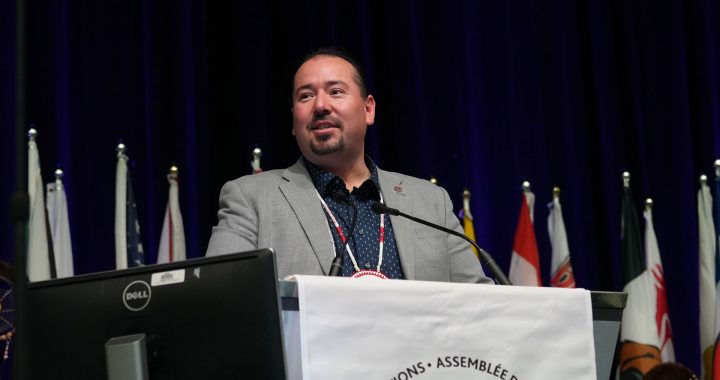
While Richard Wagamese isn’t here to write any more novels, another of his books, Ragged Company, is being made into a movie.
The First Nations journalist, author, and television personality died in March 2017 – before his first book Indian Horse hit the big screen.
Now, Ragged Company is being adapted into a film by British Columbia-based Sea to Sky Entertainment and Grinding Halt Films.
The movie will be directed and shot by Stephen Campanelli and written by Jules Koostachin, who is working with screenwriter and novelist Dennis Foon. Cameras are to begin rolling in 2023.
Wagamese’s story is about a group of homeless people who, seeking to escape Arctic-like temperatures, seek refuge in a movie theatre and form a community.
Homelessness is something Wagamese was familiar with.
After being born on Oct. 4, 1955 near Minaki, Ont., as a member of the Wabaseemoong Independent Nations reserve, Wagamese grew up in a series of foster homes and was a generational survivor of Canada’s residential schools.
“I remember in Calgary when he called me to ask when a particular bookstore was open so he could go in and get warm,” said John Pearce, his editor and publisher who later became his literary agent.
Found solace
Wagamese found solace and meaning through writing and storytelling.
Pearce worked with Wagamese on Ragged Company.
“The eventual hope and healing that comes through in the book was very much a part of Richard and what he was hoping for himself and anyone in similar circumstances,” said Pearce. “Everybody in the novel is half-something, no one there was 100 per cent First Nations and that was something that mattered to him in this book.
“He felt that spoke to the common humanity he was always looking for. Whoever you are, whatever your background or experience, there’s a commonality that transcends labels.”
The novel received widespread praise for its depiction of the struggles and triumphs of the homeless community, and for its portrayal of the complex and diverse lives of its characters.
Foster talent
An important part of Wagamese’s legacy is the work he did to foster talent in Indigenous communities.
“Richard believed … and remember we were talking about the 1990s, that Indigenous voices had not been heard enough and that there were not enough Indigenous writers,” said Pearce.
Wagamese travelled across the country holding workshops for Indigenous writers and trying to encourage self-expression for the community.
“He really worked hard at that and gave a lot of his time to that. I think that’s not a story about his writing except that he felt like he was a voice for his people and he wanted to make sure there were many more voices.
“He was ahead of his time,” Pearce added. “Now today we see the full results of that.”
Indian Horse was adapted into a feature film, with many of the same people who are involved in the new project. The screenplay was written by both Foon and Wagamese himself.
The film was directed by Campanelli and starred Indigenous actors such as Sladen Peltier and Forrest Goodluck.
Social justice
Throughout his career, Wagamese was known for his commitment to social justice and his dedication to storytelling as a means of promoting understanding and empathy.
In addition to his work as an author and screenwriter, Wagamese worked as a journalist and television host, using his platform to shed light on important social issues and give voice to marginalized communities.
His most recent book, published posthumously, is a compilation of his work. Richard Wagamese Selected: What Comes from Spirit was released in 2021. One dollar from each copy of the book goes to the Indigenous Voice Awards.










